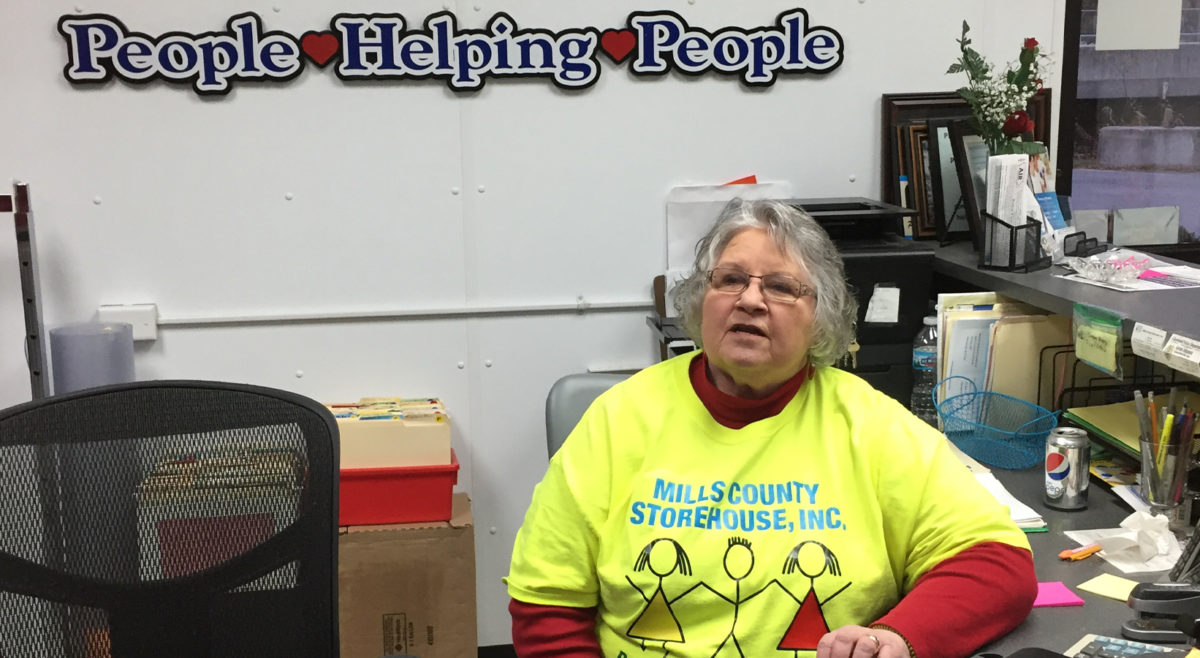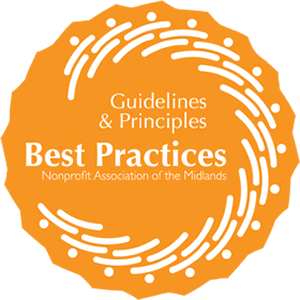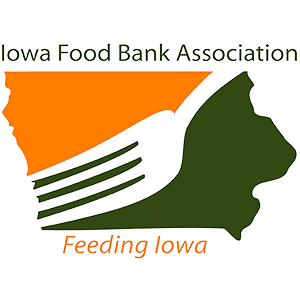Glenwood, Iowa has a population of just over 5,100 people. It’s likely that in the last 20 years, many of those residents have been touched by the kindness of Barbara Kaiman. An outstanding leader in the fight against hunger, Barbara has served her local community by volunteering as the food bank director for the Mills County Storehouse—one of Food Bank for the Heartland’s Network Partners—for more than twenty years.
Barbara has been taking care of others for as long as she can remember. By profession, she’s a nurse. She’s also a foster parent—over a seven-year span, she and her husband fostered 28 children. Barbara says her work in health and community services has taught her that not everyone has a level playing field. “We need to do what we can to build that bridge and level that playing field out.”
In her years of service, Barbara witnessed the need for food assistance and the damaging effects hunger can have on a community, but nothing prepared her for what she would face after the historic flooding across southwest Iowa in the spring of 2019.
“We had 440 families who went from happy homeowners to being homeless overnight, without warning. These were people that I knew who lost everything.”
Barbara was determined to assist those whose worlds were turned upside down. “I started making calls and posting to social media that we needed help. And then it just started pouring in.” Despite the turmoil her community was experiencing, she witnessed compassion and generosity every step of the way. “I had trucks coming in with donations from Texas, North Carolina, Colorado, and Minnesota. The nationwide support just blew me away.”
Barbara says as the help kept coming and expanded the support beyond food assistance. “I needed more volunteers to help with the increase in demand. Immediately we had thousands of volunteers. We took the gym from the local high school and filled it with tables of clothes for kids, kitchen appliances, and all the personal items they needed—as well as food. Then we worked with the resource center and made a store there so all our flood victims could help themselves to anything. That went on for more than a year.”
While every donation was greatly appreciated, the mental and emotional effects of the catastrophic floods had taken its toll on her community. “There is no training that teaches you how to go from a comfortable life to crisis overnight, and then to get stuck in that crisis.”
She recalls one story that has always stayed with her. “A young man came in with a cane one day. He had physical therapy three times a week, at a location just a few miles across the river. Instead of ten minutes, it became a 45-minute drive each way, (because bridges were out) which meant more gas, more money, more time.”
Barbara said he didn’t want food, but he didn’t know what he wanted. “He kept saying I didn’t lose my home. I told him ‘Yes, but you lost the way you knew your life.’ So we gave him food, gas cards, and some Walmart gift cards and he went on his way.”
She’ll never forget what happened next. “He came back into the store and said to me, ‘You saved my life that day. I was thinking I would be worth more to my family if I wasn’t here. Having all that food and support from you, it was the first time my wife and I had felt hope since the flood.”
His powerful words made a lasting impact on Barbara and taught her a lesson she still shares today. “Desperate people come in all colors, shapes, and sizes. You can never judge. You never know what someone is coping with. Always listen. And never stop listening to your heart.”
After the floods, Barbara shifted her model again to respond to a different crisis—the pandemic. To this day, she calls families every week and reads them a list of what’s available in the pantry. The food can either be picked up or delivered, depending on the needs of the individual.
“It’s important. The gratitude from people when they see the food that’s waiting for them. They know they’re going home and they’re going to have things in the refrigerator and things in their cupboards. They’re going to have choices, and it makes their load a little lighter.”
Barbara believes delivering that joy is the reason she was put on this earth. When asked why she dedicates her time, her answer was poignant and powerful. “Because I’m alive,” she said. “If each of us just tried to make sure we left things better than we found them, the world would be a better place.”
Barbara Kaiman is a testament to the strength and character of the Heartland and a steadfast supporter of her small-knit community. “These are my people. My husband was born in this town, I was born in this town, and we have been blessed. I’m alive. Why wouldn’t I make a difference?”
Barbara’s drive to serve, combined with her fearlessness, and leadership have altered countless lives in Iowa. We thank her for her unending commitment to consistently deliver the values of the Food Bank—serving neighbors with respect, integrity, and urgency—and for making this world a better place.






